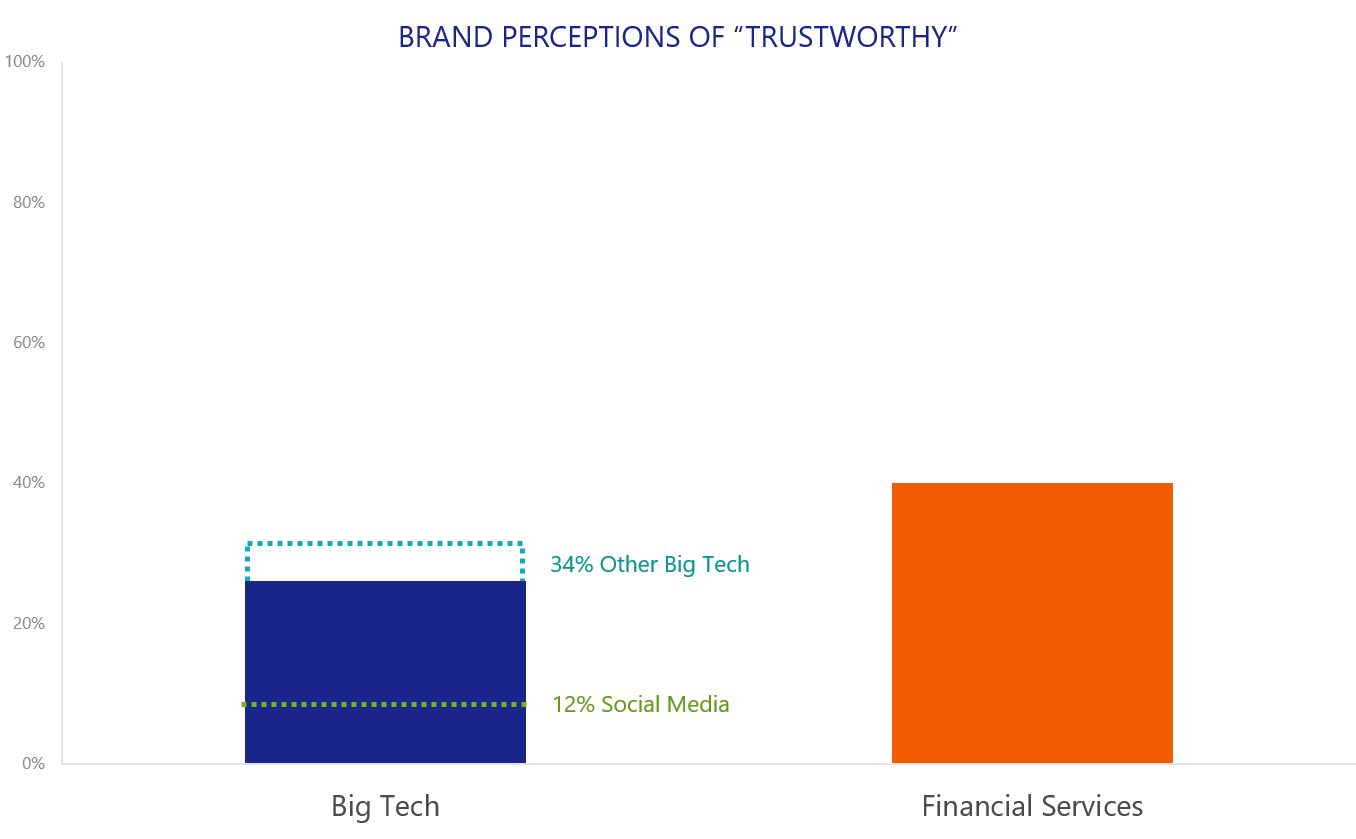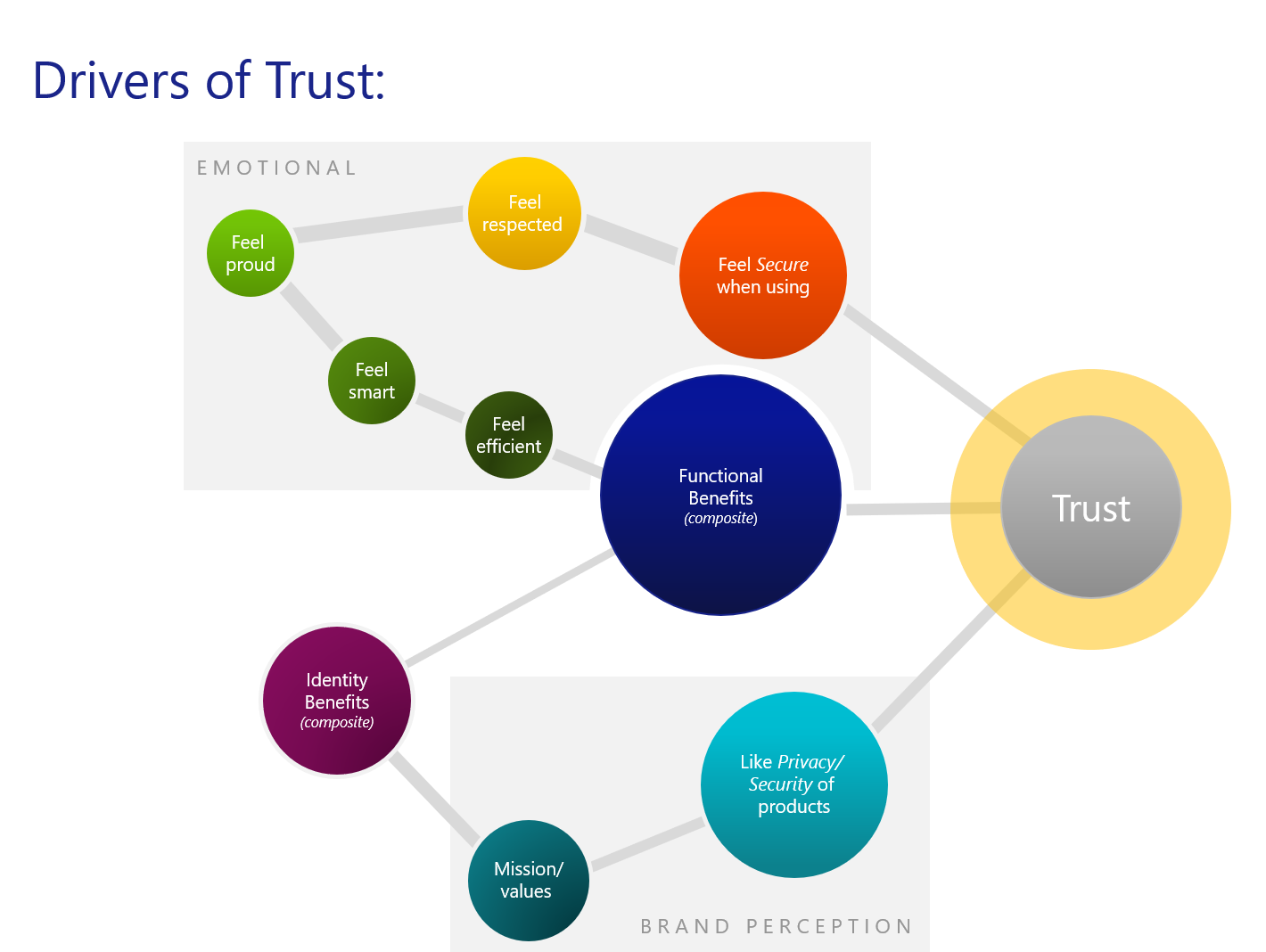It’s about a 5 min. read.
In the world of corporate reputations, Big Tech companies have had a rough couple of years. As we ramp up full-steam into the 2020 electoral cycle, they are increasingly in the cross-hairs of government regulatory and legal actions.
Big Tech has lost valuable trust among customers, and the general public. Personally, I’ve recently had a lot of conversations with people who are convinced that smartphones are not only monitoring every click, swipe, and direct command, but also eaves-dropping on their general conversations in order to serve targeted ads. E.g., “When I mentioned to a colleague that I was going hiking, I was immediately bombarded with ads for hiking boots.” And in this same vein…if I’m being completely honest…I confess to putting my phone on airplane mode (and often turning it off altogether) for extended periods of time, only booting it up when there is something specific I need to use it for. Paranoia runs deep.
It was no surprise, then, when we just got back some piping hot tasty data from CMB’s latest self-funded BrandFxSM 2.0 study of 20,000+ U.S. consumers and confirmed that – yes – Big Tech has a major trust problem.

More specifically, the technology brands we covered had lower association with being “trustworthy” than our bundle of Financial Services brands, despite the financial meltdown of the 2008 Great Recession still in people’s collective consciousness, and just two years after the massive Experian credit history data breach. And – yes – social media brands are taking the brunt of this “Trust Fall” of 2018-2019, but this is a “negative halo” effect impacting all of the “Big 5” Tech Brands (Amazon, Apple, Facebook, Google, Microsoft).
Like most things here at CMB, we don’t just want to proclaim that the sky is falling: we try to sort out what to actually do to prop it back up again. So, we dove deeper into our BrandFxSM data using Bayes Nets analysis to figure out:
Interestingly, the biggest link to “trustworthy” is actually a tech brand’s functional benefits. In other words: people trust a tech company as long as it reliably makes their life easier in some tangible, functional way (see below).

Not too far behind this, there are strong links to perceived privacy & security (both as a general brand perception, as well as whether the brand makes people feel secure when they’re using it). There are “rational” ways to boost customer perceptions of your products & services as being secure and guarding their privacy, and while this is important, it is more impactful to get people to feel secure when they use your product. Factual proof-points aren’t enough to achieve this on an emotional level.
On the emotional side of feeling “secure,” we uncovered a strong link here with feeling “respected.”
If someone believes a tech company actually respects them as a customer, they are more likely to feel secure when using them (vs. selling all of their intimate data to the highest bidder, regardless of purpose).
On the ”functional” side of brand perceptions around believing that a tech company’s products are private and secure, there is a strong link to believing that the company has a strong mission and values that you agree with.

If someone believes that the company ultimately has noble goals, they are more likely to perceive them to be good with their data’s security and privacy which makes them more likely to trust the company.
This belief in the company’s mission, in turn, has strong links to overall Identity Benefits (i.e., “I feel good using [BRAND] because I believe in their mission and values, which align with my own.”)
Perceptions of a company being “trustworthy” don’t have a large direct impact on a customer’s future usage intent, but they are linked to several other key things that do drive future usage intent. As we saw earlier, there is a strong linkage between “trustworthy” key emotional benefits like feeling secure, respected, proud, smart, and efficient. These are all important emotions for Tech brands to activate, and emotional benefits are the strongest predictors of future usage intent in this industry. Our analysis also revealed links between “trustworthy” brand perceptions and identity benefits (through privacy/security perception). As major tech companies are all vying to expand into people’s everyday lives, consumers are increasingly making choices as to which “tribe” they are loyal to (and will use across many categories). At the moment, privacy, security, and, by association, trust play a significant role in their brand loyalty.
What now? If you’re a tech company, start by elevating your company’s core mission and values in media and PR campaigns. Through your messaging, convey a strong sense of respect for your customer as an individual, including their data privacy and security, because these have a greater impact on brand affinity and customer loyalty than any functional benefit a new product release offers. Consider increasingly innovative ways to give them more direct control over what types of data you can and can’t use, and for what purposes, making clear the benefits they also get by doing so (e.g., more free content or services, better-performing services like virtual assistants that can “learn” from more of your personal data). This way, you can deliver valuable, trusted information, in a way that doesn’t turn off your customers, like an ad freaking out your customers with hiking boots they don’t need.